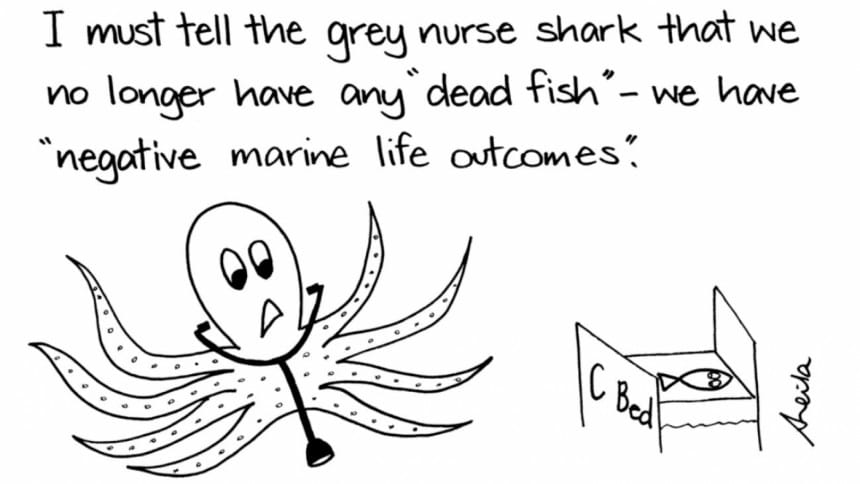What language do "boat people" speak?

The English language is loaded with euphemism and American euphemisms are in a class of their own. As George Carlin, the American comedian noted, people used to get old and die. Now they become senior citizens and then pass away. Sometime during my lifetime used cars became pre-owned vehicles and false teeth became dentures. The poor in the US, like everywhere else in the world, used to live in slums. The economically disadvantaged now occupy substandard housing in the inner cities. They are not broke; they have a negative cash flow.
People are fooled by the system that if you change the name of the condition, you can somehow change the condition. No more deaf or blind people. They are hearing or visually impaired. No one is bad at math. They are math-challenged.
The US government did not engage in mass murder in Vietnam, they carried out pacification. The US military did not torture prisoners in Iraq, they used enhanced interrogation techniques. Propaganda campaigns have unfolded alongside the battlefield for generations. But Israel has brought a whole new level of dehumanising language.
There is no Hebrew word for assassination, so killings of Hamas operatives are described with a phrase meaning "focused obstruction." Instead of civilians, slain children and women are sometimes called "uninvolved." By calling them "uninvolved", Israel is admitting that here's someone who is not trying to harm them but they won't give him any other identification. It was not a child who wanted to learn how to fly a kite; it was just somebody who didn't shoot at them.
This is by all means corruption of thought by language. Words like these are used to hide the truth, conceal reality. They mask a decision's unpleasant consequences as in "collateral damage" for "dead civilians". "This is a typical case of the way the framework of thought is consciously manipulated by an effective choice and reshaping of terminology so as to make it difficult to understand what's happening in the world," says Noam Chomsky in Stenographers to Power: Media and Propaganda. "A very important function of the ideological institutions-the media, the schools, and so on-is to prevent people from perceiving reality, because if they perceived it they might not like it and might act to change it, and that would harm privileged people who control these things."
The Americans and the Israelis, however, do not have a monopoly over cloudy, vague language. In 1945, Emperor Hirohito informed his people of his country's unconditional surrender that followed two atomic bombs and the loss of three million people with the words, "The war situation has developed not necessarily to Japan's advantage." No kidding.
While circumlocution like this may mislead, some are simply motivated by kindness. For example, Chinese people don't like being too direct in turning down requests for interviews. So they will often say that something is bu fangbian, meaning not convenient. This does not mean retry next week. It means they don't want to do it, ever.
The British are probably the world champions of euphemism—foreigners, even those with a good command of the English language, may miss to get the underlying message in such bland remarks as "I hear what you say." (Translation: I disagree and do not want to discuss it any further.) An alcoholic is called "convivial" or "cheery". When someone has "lively wit" it means he has a knack for telling jokes that are dumb and cruel. "Austere" and "reserved" mean unhappy and depressed. "Hands-on mentoring" of a junior colleague is usually code for an affair. A bureaucrat warning a minister that a decision would be "courageous" is saying that it will probably end his career.
Politically correct euphemisms are the worst. Good and bad have become "appropriate" or "inappropriate". A serious problem becomes a less alarming "challenging issue". Thus all our problems became challenges. And now, everything is an opportunity. The question is whose.
I think a euphemism is a kind of lie, and the lies peoples and countries tell themselves are revealing. Describing Rohingya migrants as "boat people" is disturbing and unacceptable to me. Calling them "boat people" is to deny the circumstances that compelled them to take such desperate measures. They do not live on boats.
How about calling them "a people kicked out of their native land because of their ethnicity and religion, now trying to just survive by whatever means available?"
How's that for some euphemism?
The writer is an engineer-turned-journalist.

 For all latest news, follow The Daily Star's Google News channel.
For all latest news, follow The Daily Star's Google News channel. 



Comments